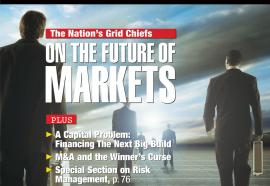Bad Day at Black Oak
Beware even the best of attempts at apportioning grid rights and costs.
Several recent complaints involving PJM and now at FERC pose fundamental questions on how regulators and grid operators should attempt to price and allocate grid rights and costs. Is the transmission network a public asset, with costs that must be apportioned on principles of equity? Or, rather, is transmission an instrument of commerce, to be priced so as to maximize trade?







